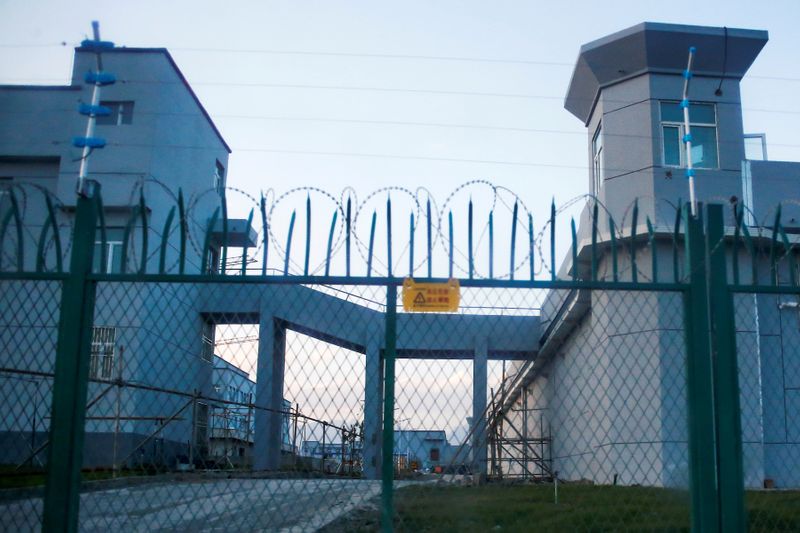By Stephanie Nebehay
GENEVA (Reuters) - The largest group representing exiled ethnic Uighurs has written to U.S. Secretary of State Antony Blinken urging him to demand that Beijing close its internment camps in the Xinjiang region in talks on Thursday.
Activists and U.N. experts say that more than 1 million Muslim Uighurs and other Turkic Muslims are being held against their will in harsh camps in the remote western region.
China rejects U.S. charges that it has committed genocide against ethnic and religious minorities, and says the camps provide vocational training to help stamp out Islamist extremism and separatism.
Blinken and national security adviser Jake Sullivan are to meet China's top diplomat Yang Jiechi and State Councilor Wang Yi in Alaska, in the first face-to-face meetings between the rival powers since Joe Biden became U.S. president.
Blinken has already accused China of coercion and aggression at home and around the region.
Dolkun Isa, president of the World Uyghur Congress, told Blinken: "First and foremost, it is imperative that China immediately and unconditionally ends the ongoing genocide and crimes against humanity in East Turkestan.
"This includes that China closes all internment camps and unconditionally releases all those arbitrarily detained," he said in the letter from his group's base in Munich, Germany.
The exiles call Xinjiang "East Turkestan", and the group uses a different spelling for the word Uighur.
Isa said China must also end the use of forced labour in Xinjiang and other regions and allow U.N. monitors to investigate.
Chen Xu, China's ambassador to the United Nations in Geneva, told the U.N. Human Rights Council on Monday: "Today, Xinjiang and Tibet enjoy prosperity and stability ... It can’t be more absurd to pin the 'genocide' label on China, and this attempt will not go anywhere."
On Wednesday, European Union countries agreed in principle to blacklist Chinese officials for human rights abuses, according to diplomats.
China has said allegations of forced labour and human rights violations in the region are groundless, and that there are no "detention camps".
It has also said all those who have attended the complexes in question have "graduated" and gone home. Access is restricted and it is not possible to verify Beijing's assertions independently.

(This story refiles to remove redundant word 'China' in first paragraph. Deletes paragraph 11, which repeated activists' description of camps.)